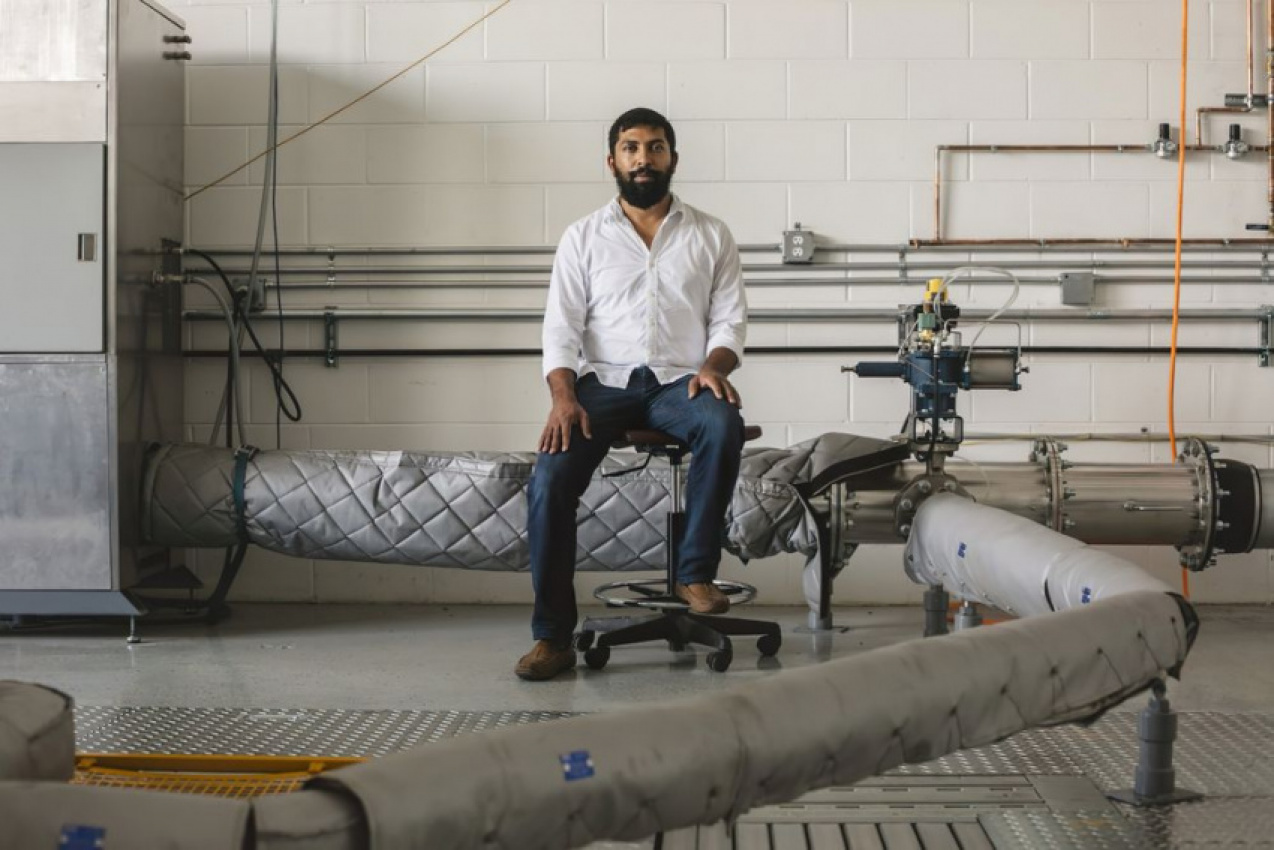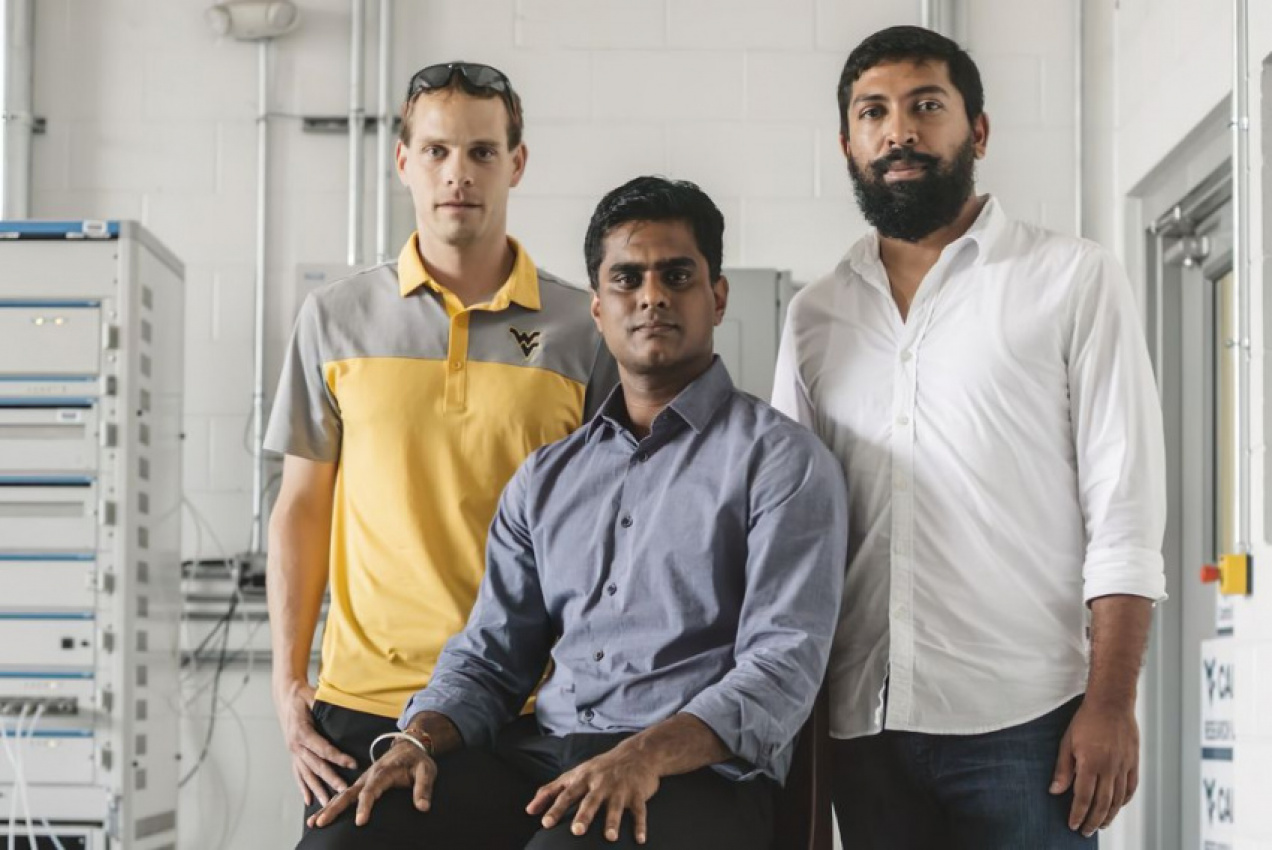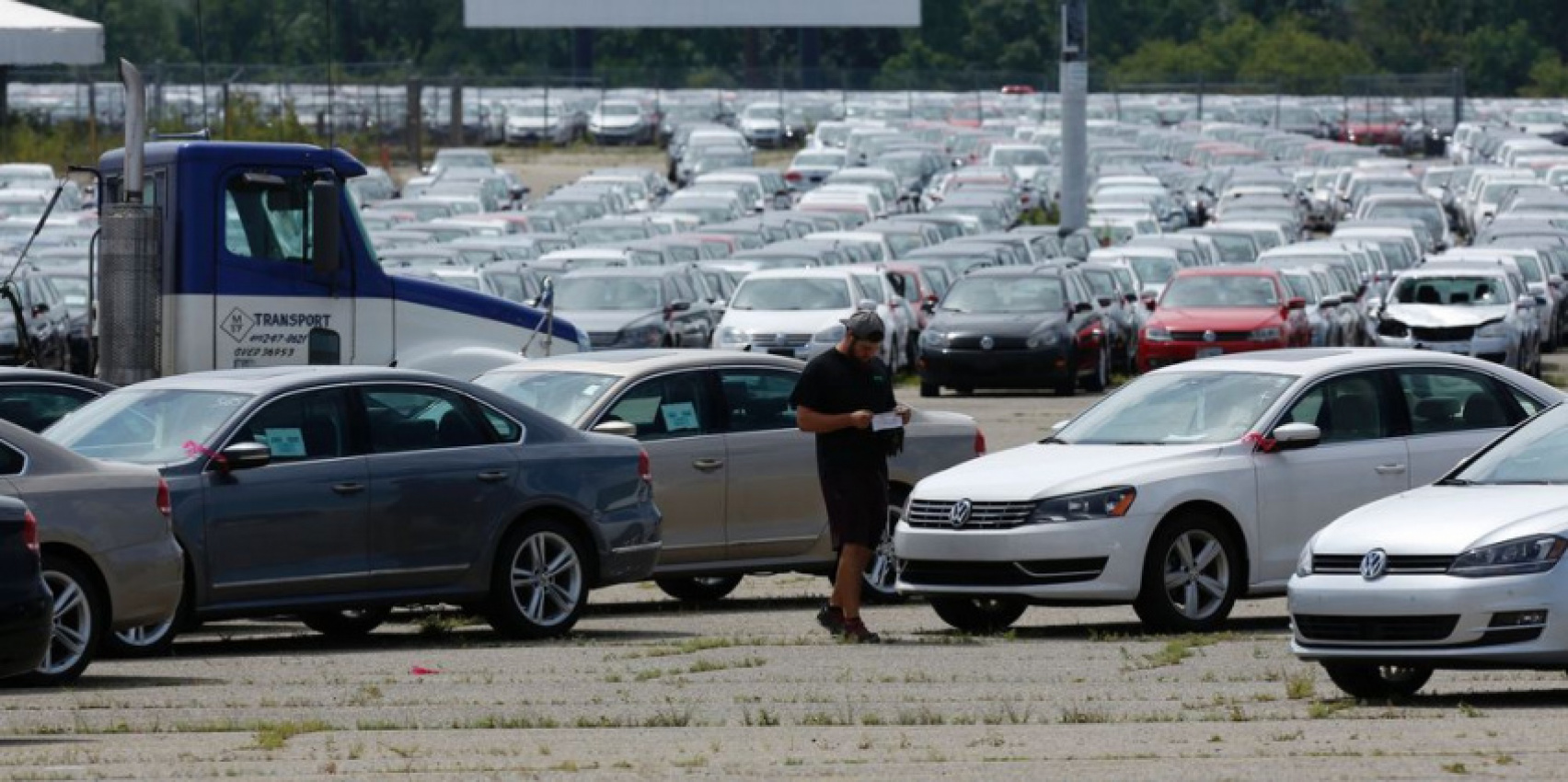Hemanth Kappann had no idea what his PhD research would uncover.

The moment Hemanth Kappanna boarded that flight, it seemed like his best days were behind him. He’d helped uncover Volkswagen’s conspiracy to cheat emissions regulations, revealing a complex, devious mechanism that allowed VW’s diesels to spew carcinogenic, climate-changing pollutants unfiltered into the atmosphere. His team, in a tiny engineering department at a not terribly prestigious public university, used a $70,000 grant to track down a deception that the U.S. Environmental Protection Agency (annual budget: over $8 billion) hadn’t detected. Kappanna and his colleagues published data that led to one of history’s biggest legal settlements, with Volkswagen paying roughly $21 billion in fines, penalties, and civil suits in the U.S. alone. Executives went to prison. VW’s CEO resigned in disgrace.
This story originally appeared in Volume 9 of Road & Track.
Kappanna and his team’s work led to a seismic shift in the automotive industry. But now he was jobless in America, with an expiring work visa. All he had was a one-way ticket to India, the country he’d left nearly 20 years ago. His return to Bangalore was not a hero’s welcome. He took public transit from the airport to his mother’s home and tried to avoid anyone he knew.
For years, Kappanna had lived the American dream. He arrived in the U.S. in 2002, 23 years old and freshly accepted to the engineering master’s program at West Virginia University (WVU). “Engineering was the way forward for us,” Kappanna says. “Back when I was studying, it was either engineering, medicine, or law.”
It was the first time he’d ever left India; this skinny, five-foot-10 kid had barely even ventured outside Bangalore, India’s third-biggest city. Talk about culture shock. “Compared to Bangalore, WVU is a village,” Kappanna says. He enrolled without financial aid, washed dishes in a dormitory dining hall, and studied under Mridul Gautam, PhD, whose specialties include real-time emissions testing on heavy-duty diesel trucks.

Hemanth Kappanna with emissions- testing equipment at the Center for Alternative Fuels, Engines, and Emissions at West Virginia University.
Andrew Spear/Redux
WVU is home to the Center for Alternative Fuels, Engines, and Emissions (CAFEE), a nonprofit research center studying ways to reduce engine emissions. Much of Gautam’s research stems from the discovery of another emissions deception. In 1998, the EPA uncovered widespread cheating in heavy-duty diesel trucks. Seven manufacturers were caught using software that recognized EPA testing procedures. Trucks ran clean in the lab but belched as much as twice the legal limit of toxic pollution in everyday driving. The EPA slapped the offenders—Caterpillar, Cummins, Detroit Diesel, Mack, Navistar, Renault, and Volvo—with an unprecedented $1 billion penalty. Some of the money went to labs like Gautam’s, where researchers devised a mobile emissions-measurement system that attached to a vehicle’s exhaust and analyzed pollution output during road driving. Working under Gautam, Kappanna became an expert in this testing.
In 2006, after completing his master’s, Kappanna landed an engineering job with Cummins, calibrating and programming medium-duty diesel engines for off-road and industrial applications. But in 2009, he lost that job as Cummins reacted to the global financial crisis. Left without a sponsor for his U.S. work visa, Kappanna headed back to WVU for his PhD.
“I was resisting that,” Kappanna says. “My advisor had always wanted me to pursue a PhD. I told him I came to the U.S. to work and make money, not to continue with my studies.” Still, he found himself back at WVU in Morgantown, grinding out another degree under Gautam.
There’s a sticky conflict at the heart of internal combustion emissions regulations. An engine’s exhaust output varies depending on its operating environment, but regulators measure vehicle emissions under standardized lab conditions. In light-duty passenger cars, that means testing on an indoor dynamometer, with the vehicle strapped to rollers and run through a strictly regimented drive cycle. The exact details of the tests vary by governing agency, but they all simulate a mild driving style—the EPA’s “highway fuel-economy test” tops out at 60 mph and is over in less than 13 minutes. Regulators are in constant communication with the industry, and automakers know exactly how their vehicles will be tested.
As Kappanna pursued his PhD, regulators and industry observers were becoming increasingly concerned about the real-world emissions of diesel-powered passenger cars. Around 2012, European lawmakers discovered that Euro-market diesel cars were emitting far more pollution in normal driving than in regulatory testing. At the time, the U.S. limited diesel emissions far more than Europe—in particular, allowing a much lower maximum output of oxides of nitrogen, or NOx.
NOx is extremely toxic. In humans, exposure is tied to asthma, chronic bronchitis, heart disease, and cancer. Released into the atmosphere, these compounds contribute to the creation of acid rain, and NOx is many times more potent than carbon dioxide as a greenhouse gas. Sunlight breaks NOx compounds into ozone and other substances that capture pollutants in a dense layer—smog.
The International Council on Clean Transportation (ICCT), a nonprofit research organization, wanted to publish real-world tailpipe numbers from stringently regulated U.S. diesels. This, they hoped, would goad the car industry into reducing diesel NOx emissions worldwide. “We thought we would be seeing some clean vehicles,” John
German, then a senior fellow at ICCT, told the New York Times in 2015.
“That was the whole point when we started.”
ICCT requested proposals from emissions-testing facilities. By then, Kappanna had finished his doctoral classwork and was looking for a research topic. He had experience with mobile emissions testing from his master’s studies. Almost on a whim, he wrote up a proposal, and WVU won a $70,000 ICCT grant to carry out the testing.
In the spring of 2013, Kappanna and fellow graduate students Arvind Thiruvengadam and Marc Besch gathered three U.S.-spec diesel vehicles: a 2013 BMW X5 xDrive35d, a 2012 Volkswagen Jetta TDI, and a 2013 VW Passat TDI. They rigged the vehicles with equipment to measure real-time tailpipe emissions. The researchers would follow routes chosen to replicate how actual car owners drive: dense urban traffic, steep mountain climbs, and highway jaunts that far exceeded the EPA’s minutes-long test cycle.

From left, Marc Besch, Arvind Thiruvengadam, and Hemanth Kappanna.
Andrew Spear/Redux
Right away, the team found something unusual. While the BMW’s emissions stayed under the legal limit in all but the most strenuous uphills, “the Volkswagens always stood out,” Kappanna says. In CAFEE’s tests, the Jetta’s NOx output sometimes reached 35 times the legally permitted maximum; the Passat exceeded the limit by up to 18 times.
The VWs were perplexing. “When you’re going at highway speed at 70 miles an hour . . . the emissions should come down,” Thiruvengadam told the New York Times in 2015. “But the Volkswagens didn’t come down.” Suspecting a mechanical problem, the WVU researchers took the two Volkswagens to a California Air Resources Board (CARB) facility and ran the EPA’s dyno test. There, the cars performed exactly as expected, with NOx emissions never exceeding the legal limit. “That’s when we understood the gravity of this whole thing,” Kappanna says.
The research team didn’t think it was their place to accuse an automaker of deception. Maybe there was something they hadn’t understood about how the VWs worked. When Kappanna and his colleagues revealed their findings, they didn’t name the vehicles tested—the paper, published in May 2014, calls them A, B, and C, with few details on engine specs and emissions equipment.
Besch presented the team’s findings at an industry conference that spring. CARB and EPA officials in the audience took note, and CARB launched an official investigation, sourcing diesel-powered Volkswagens from private owners, replicating WVU’s on-road tests, and finding the same results.
CARB officials approached Volkswagen with questions. In interviews, Alberto Ayala, a CARB deputy director, explained that his team assumed that an equipment defect or software malfunction caused the faulty results. Volkswagen’s brazen response to CARB likely sealed the company’s fate: The automaker provided the agency with reams of data that, it turns out, were meant to deceive and confuse regulators. After months of back-and-forth, Volkswagen implemented a software recall on 280,000 U.S.-market vehicles. Presented to CARB as an emissions fix, the software update was actually designed to better hide VW’s emissions-control-defeating programming from regulators.
In 2015, CARB threatened to withhold approval of the 2016 VW diesels about to hit dealerships. Without it, Volkswagen would be barred from selling new diesel-powered cars in California and 12 other states. Facing this impasse, in September, VW finally admitted to CARB and the EPA that it had purposely installed an emissions-defeat device in hundreds of thousands of U.S.-market cars, and millions more across the globe, to avoid the cost and fuel-mileage impact of proper emissions control.
By the time “Dieselgate” was unraveling in the public eye, Kappanna was long gone from WVU. He had finished his PhD in November 2014 and gotten a job at General Motors. Kappanna’s CV described a skilled mechanical engineer with academic and industry experience as well as expertise in diesel emissions. How his research would rock the auto industry was not yet known.
The day the Volkswagen cheat went public, September 19, 2015, Kappanna was working on emissions controls for GM’s 2.8-liter turbodiesel four-cylinder. He found out about VW’s scandal the way nearly everyone got news then: Facebook. Scrolling through his feed that morning, he saw posts from Dan Carder, director of CAFEE, saying “What did we just do?”
“When VW came out admitting to the press that they did it, that’s when it was like, what happened?” Kappanna says. Five names were on the research paper that started it all: Kappanna, Besch, and Thiruvengadam, the graduate students who collected the data; Carder; and Greg Thompson, PhD, the professor who oversaw the project. All five were
shocked that their investigation had led to this. “Emissions measurement is a field that does not have any glamour,” Kappanna says. “It’s only when we come up with this kind of news, that’s when people look up and say, ‘Oh, you guys exist.’ ” In our conversation, Kappanna is careful not to overstate things. He’s polite, reserved, speaking with an engineer’s precision. Five years later, he’s still blown away by how things unfolded.

The Volkswagen Group was forced to buy back hundreds of thousands of cheat- ing diesel vehicles in the U.S., stored en masse in lots like this one, photo- graphed in 2017.
Jeff Kowalsky/Getty Images
Dan Carder was named to Time magazine’s “100 Most Influential People” for 2016. For Kappanna, his involvement with the study that unmasked Dieselgate has had pluses and minuses. In terms of auto-industry jobs, “I could not market myself on this allure,” Kappanna says. “They would look at me and think, is he in favor of the industry or in favor of regulators?” And yet, he couldn’t get a job with U.S. regulators—Kappanna, not a U.S. citizen, is ineligible for government jobs.
Kappanna was laid off by General Motors in February 2019, one of roughly 4000 employees let go in a “strategic transformation.” At the time, he worked helping the automaker comply with stricter EPA regulations enacted in response to the Dieselgate scandal. (In a statement to the New York Times in 2019, GM said Kappanna’s dismissal “was not related to any emissions compliance concerns or related issues,” nor was his noncitizen status a factor.)
He got two months’ severance and a one-way ticket to Bangalore. He had been living in the U.S. for 17 years, occasionally visiting family in India. It had become an unfamiliar place. “I was a tourist,” Kappanna says. “I would go places and think, ‘India still needs to catch up on so many things.’ When I had to go back and live there forever . . . Man, it’s tough.” He moved in with his mother.
Jack Ewing, who led the New York Times’ Dieselgate coverage and wrote a book about the saga, penned an article on Kappanna’s plight, dated May 6, 2019: “Six Years Ago, He Helped Expose VW’s Diesel Fraud. This Year, GM Let Him Go.”
“When I went back to India, the whole story kind of exploded,” Kappanna says. “For a month and a half, I was so busy giving interviews to so many news outlets. My mom was like, ‘You’re so busy answering their questions. You take so much effort. Are they giving you any job leads?’ ” He puts on the voice of a sullen teen: “No, Mom.”
Ewing’s article explained the end of one chapter in Kappanna’s life, and opened the next. “One of the Times readers sent me an email. She said she had this good person who is looking for a life partner. Would I be interested in talking with her?”
Kappanna was skeptical but amused. “I’m like, I don’t have anything to lose.” The email called Kappanna a hero for his work exposing VW. “If it was someone from Nigeria asking for money, I would say, ‘I’m the hero, right? Why don’t you give me some money?’”
The woman who’d emailed was the sharp-eyed family friend of Malini Basu, an Emmy-winning TV news reporter in Texas. Basu and Kappanna finally met in person in September 2019, in Kolkata—an Indian city Kappanna had never visited. He was excited but shy. “I was trying to make her feel comfortable,” he says. “Instead, she was the one who made me feel comfortable in Kolkata. She could talk with people in fluent Bengali,” the language spoken there. One year later almost to the day, the two were married.
Hemanth Kappanna still lives in Bangalore. His return to India was unexpected, but the life he’s built there is good. His LinkedIn page lists him as deputy general manager at Mercedes-Benz Research and Development India, a position he’s held for over two years. He drives a company car, a Mercedes C-Class. When he arrived in India, he started running, and he’s made great friends through the sport.
“No regrets,” he says. “Can you imagine? I’ve lost my job two times. It was not easy. Whatever I went through, I put myself out there. I always took it in good spirits.”
Keyword: The Man Who Unearthed Volkswagen’s Emissions Cheat
